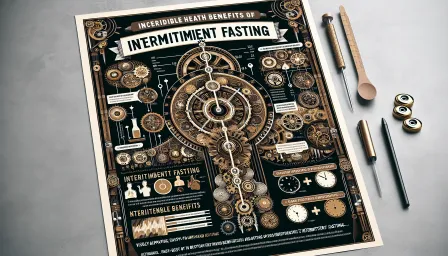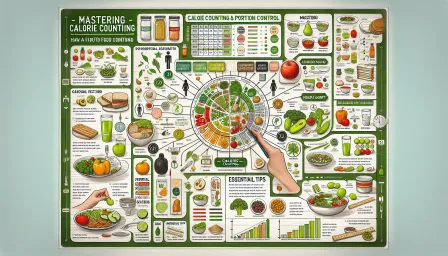The Ultimate Guide to Weight Loss Maintenance and Hormone Balance

Discover the ultimate guide on how to maintain weight loss and balance your hormones effectively. Learn the best strategies, tips, and scientifically backed information for long-term success.
Balancing weight loss maintenance and hormone levels can often seem like a daunting task. Understanding the complex relationship between these two factors is crucial for long-term health and well-being. This guide will provide you with practical strategies and scientific insights to help you maintain your weight loss and promote optimal hormone balance.
Understanding the Connection Between Weight Loss and Hormones
Hormones play a significant role in regulating weight and metabolism. Key hormones such as insulin, cortisol, leptin, and ghrelin influence hunger, fat storage, and energy expenditure. When these hormones are balanced, weight maintenance becomes more manageable.
The Role of Insulin
Insulin, produced by the pancreas, helps regulate blood sugar levels. High insulin levels can lead to increased fat storage, making it more challenging to maintain weight loss. To manage insulin levels, focus on a diet rich in whole foods and low in refined sugars and processed carbohydrates.
Cortisol and Stress
Cortisol, known as the "stress hormone," can lead to weight gain, particularly around the abdomen, if levels are consistently high. Stress management techniques such as mindfulness, exercise, and adequate sleep are crucial to keeping cortisol levels in check.
Leptin and Ghrelin: The Hunger Hormones
Leptin tells your brain when you're full, while ghrelin signals hunger. Imbalances in these hormones can lead to overeating and weight gain. Adequate sleep, regular meals, and a diet high in protein and fiber can help balance leptin and ghrelin levels.
Practical Strategies for Weight Loss Maintenance
Maintaining weight loss requires a multifaceted approach that includes diet, exercise, and lifestyle changes. Here are some effective strategies:
Adopt a Balanced Diet
Focus on a diet that includes a variety of nutrient-dense foods. Antioxidants, healthy fats, lean proteins, and complex carbohydrates are crucial for maintaining weight and hormone balance. Incorporate plenty of fruits, vegetables, whole grains, and healthy fats such as avocado and nuts.
Regular Physical Activity
Exercise is essential not just for burning calories but also for balancing hormones. A combination of cardiovascular exercise, strength training, and flexibility exercises can help you maintain a healthy weight. Aim for at least 150 minutes of moderate exercise per week.
Mindful Eating Practices
Mindful eating can prevent overeating and promote better food choices. Pay attention to your hunger and fullness cues, eat slowly, and avoid distractions such as TV or smartphones during meals. This practice can help regulate your appetite and improve digestion.
Quality Sleep
Sleep plays a vital role in hormone regulation. Poor sleep can disrupt insulin, cortisol, leptin, and ghrelin levels, leading to weight gain. Aim for 7-9 hours of quality sleep per night and maintain a regular sleep schedule.
Manage Stress
Chronic stress can lead to hormonal imbalances and weight gain. Incorporate stress-relief techniques such as yoga, meditation, deep breathing exercises, or hobbies you enjoy into your daily routine.
Nutritional Supplements and Hormone Balance
While a balanced diet and a healthy lifestyle are critical, certain supplements can support hormone balance and weight maintenance:
Omega-3 Fatty Acids
Omega-3 fatty acids, found in fish oil and flaxseeds, support hormone function and reduce inflammation. They can help balance insulin levels and reduce cortisol.
Vitamin D
Vitamin D is essential for hormone production, particularly sex hormones such as estrogen and testosterone. Ensure adequate exposure to sunlight and consider supplements if necessary.
Probiotics
Gut health is closely linked to hormone balance. Probiotics can improve gut health and support insulin and leptin regulation. Incorporate fermented foods such as yogurt, kefir, and sauerkraut into your diet.
Magnesium
Magnesium is involved in over 300 biochemical reactions in the body, including hormone production. It can help manage insulin sensitivity and reduce stress. Foods high in magnesium include dark leafy greens, nuts, and seeds.
The Importance of Regular Health Check-Ups
Regular check-ups with healthcare providers can help monitor hormone levels and overall health. Blood tests can identify imbalances, and professional guidance can help tailor lifestyle adjustments or treatments to your specific needs.
Common Pitfalls and How to Avoid Them
Maintaining weight loss and hormone balance is a continuous process that may come with challenges. Here are some common pitfalls and tips to overcome them:
Yo-Yo Dieting
Repeatedly losing and regaining weight can disrupt hormone balance and metabolism. Focus on sustainable, long-term lifestyle changes rather than short-term diets.
Over-Restricting Calories
Severely restricting calories can lead to nutrient deficiencies and hormonal imbalances. Ensure you consume enough calories to support your activity level and overall health.
Ignoring Emotional Health
Emotional well-being is crucial for managing stress and maintaining healthy habits. Seek support if needed and prioritize mental health alongside physical health.
Conclusion
Maintaining weight loss and achieving hormone balance are intertwined goals that require a comprehensive approach. By understanding the role of hormones, adopting healthy lifestyle practices, and seeking professional guidance, you can achieve and maintain long-term health and well-being. Remember, consistency and patience are key to success.



























